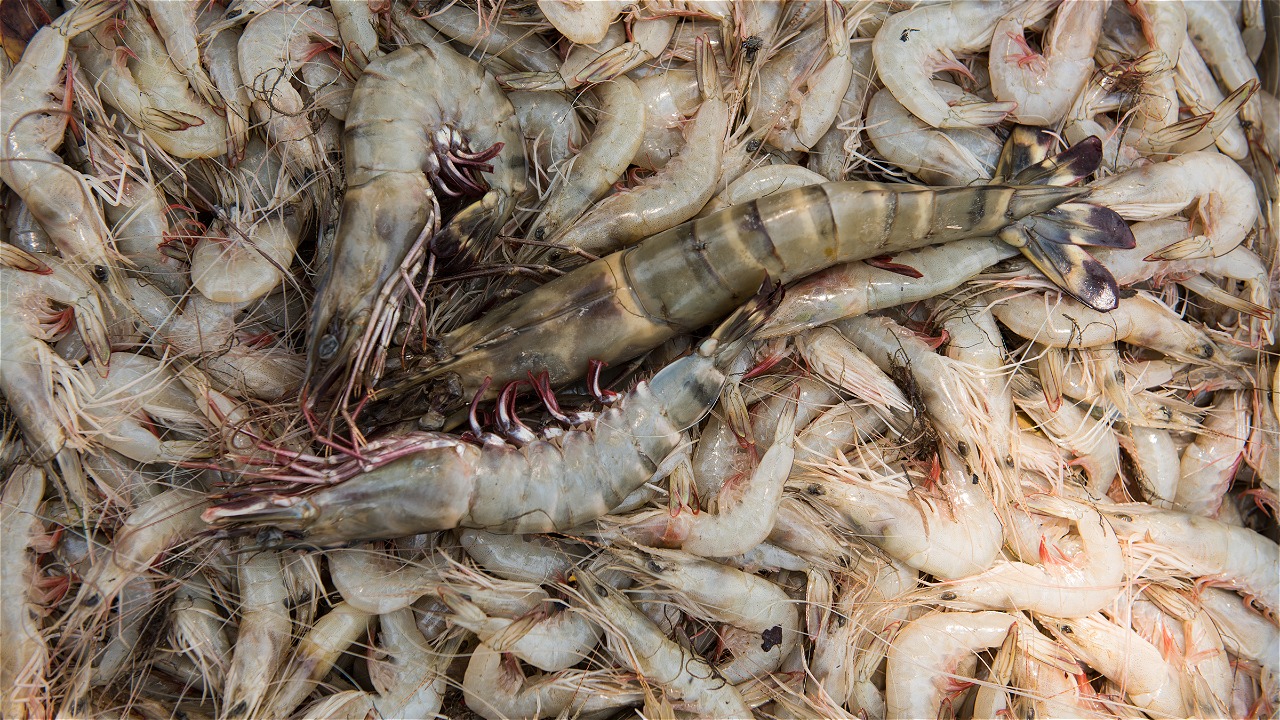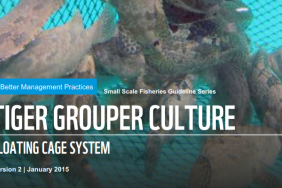BMP TIGER SHRIMP FARMING TRAINING, NO MATTER THE AGE AND LIMITATIONS
Author: Agis Riyani (Local Facilitator of Aquaculture Improvement Program Java)
Better Management Practices (BMP) training for pond operators of the Eco Shrimp group assisted by KOIN (Konservasi Indonesia), a member of JARING-Nusantara, took place on January 28. The training, which took place in Penatar Sewu Village, Tanggulangin District, Sidoarjo Regency, was established as a means of discussion and learning together about sustainable shrimp farming in accordance with the guidelines contained in the BMP. This training is the first step in the implementation of the Aquaculture Improvement Program (AIP).
The tiger shrimp farming BMP training was attended by 9 participants of the Eco shrimp group, almost all of whom have been working for approximately 15 years. Therefore, the ability and experience about tiger shrimp farming is no doubt. Although most of the pandega ponds are elderly, even to read and write is very difficult to do, but with it does not dampen the spirit of the pandega to follow the training of BMP Tiger Shrimp Cultivation.
"Learning knows no age", those are the motivational words they said.
Discussion and Learning with Eco Shrimp Group
The training began with an pretest as an initial refresher before the training material was given. Wahju Subachri (Senior Officer Aquaculture) opened the training by asking about some of the obstacles faced by the farmers. Mr. Anwar, one of the pandega ponds loudly replied, "One month old shrimp affected by disease, poor water quality, slow shrimp growth". Mr. Mariadi, who is also a pond pandega, raised problems such as natural feed that does not grow, poor quality of fry and unstable weather.
In the training process, Wahju explained the contents of BMPs regarding cultivation land preparation, fry selection and stocking, cultivation water quality, growing natural feed, and recording cultivation activities. After Wahju's presentation, the event continued with a question and answer session. In the question and answer session, the pandas expressed their curiosity about shrimp farming techniques such as what to do to prevent shrimp from getting diseases, how to grow natural feed, and how to do good land preparation. After the Q&A session, the pandas were given a post-test to assess whether the BMP training was understood by the participants.
However, during the activity some challenges arose from this training, such as some pandas did not bring reading tools such as glasses so they had difficulty answering the pre-test and post-test questions given. In addition, some elderly farmers who could not read fluently showed as if they did not understand the training material, even though during the discussion session about the cultivation activities carried out, they seemed to understand very well.
Farmers also expressed the hope that they could be facilitated in terms of measuring water quality and selecting good fry. So that the tiger shrimp farming activities carried out by the Eco Shrimp group in the future are sustainable and environmentally friendly.





